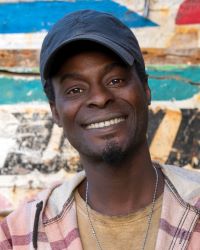Wolof in Senegal

Photo Source:
Copyrighted © 2026
Kerry Olson All rights reserved. Used with permission |
Send Joshua Project a map of this people group.
|
| People Name: | Wolof |
| Country: | Senegal |
| 10/40 Window: | Yes |
| Population: | 6,250,000 |
| World Population: | 7,106,600 |
| Primary Language: | Wolof |
| Primary Religion: | Islam |
| Christian Adherents: | 0.01 % |
| Evangelicals: | 0.00 % |
| Scripture: | New Testament |
| Ministry Resources: | Yes |
| Jesus Film: | Yes |
| Audio Recordings: | Yes |
| People Cluster: | Atlantic-Wolof |
| Affinity Bloc: | Sub-Saharan Peoples |
| Progress Level: |
|
Introduction / History
Hundreds of years ago the Wolof conquered many tribes in the northwestern Senegal area. By the end of the 1300s, the Wolof had grown into a large empire of separate, self-governing states. By the 1500s, the empire had split into four major Wolof kingdoms.
The French expanded into Senegal during the 1800s, making it a colony of French West Africa. Wolof leaders of the resistance to the French were often charismatic Sufi Muslim leaders, who have since become folk heroes. Islam became a focal point of resistance to the French. In 1968, Senegal gained its independence from France. However, European influences are still a part of Wolof culture, which are apparent in many ways.
Most Wolof people live in Senegal and The Gambia, but they also live in several other countries of West Africa. For example, the expansion of peanut cultivation and an acceleration towards urbanization motivated many to spread out into Cote d'Ivoire and Mali. There they hope to make use of the land and find better jobs in the cities. There is also a Wolof diaspora in several European countries, Turkey and the United States.
Traditionally the Wolof were divided into three classes: the freeborn, those born into slavery, and the artisans. The freeborn class ranged from high-ranking noblemen to common peasant farmers. The slave class was made up of the Wolof, whose parents were slaves. They were born into slavery and continued to serve their parent's masters. Finally, the artisans were considered a low class in Wolof society. This group included blacksmiths, leather workers, and musicians. Intermarriage among the three classes was a very rare occurrence.
What Are Their Lives Like?
Most of the traditional class distinction is disappearing among the Wolof. For example, former president Abdou Diouf of Senegal was from the blacksmith class.
The Wolof, particularly the women, are known for their beauty. They dress fashionably and wear sophisticated hairstyles. In fact, they are often the fashion-setters for others around them. Unfortunately, the men are not expected to take precautions with irresponsible sex habits. Despite their Islamic beliefs, pre-marital sex is expected among the Wolof people, especially in an urban setting.
While many of the Wolof have settled in cities and work as merchants, teachers, or government officials, most still live in rural areas and work as farmers. The main cash crop for Wolof farmers is peanuts. Huge sacks of them are sold to traders, and the earnings are used to provide new clothes, household utensils, blankets and tobacco. They grow okra, peppers, beans and tomatoes in gardens around their houses. Wolof do not like change and are content with the same daily meals. Their basic dietary crops include sorghum and millet. For breakfast, they make a porridge out of grains. A typical evening meal would be grains covered with either peanut and tomato sauce or meat and bean sauce.
A typical Wolof village consists of several hundred people living in compounds that are grouped around a central village square. The compounds contain houses made of mud or reeds. Fences are built just inside the compound entrances to block the view of strangers. Public events, such as dancing and wrestling, take place in the village square. A platform used for public meetings is usually located in the center of the square, and a mosque is located on the square's east side.
What Are Their Beliefs?
Islam and Wolof identity are closely intertwined. Islamic jihads and resistance to the French colonial powers solidified the Wolof people's commitment to Islam. They rallied behind Sufi Muslim leaders and holy men known as marabouts. Marabout leaders are still honored and followed unquestioningly by many Wolof today. Some of them are charged with giving Wolof boys a good Muslim education where they learn the Koran, but most of these boy's time is spent begging for money to bring to these religious teachers.
Despite their Islamic beliefs, the Wolof also believe in bad and good spirits as well as witches. They think that all of these live in their villages. Evil spirits live in tall trees or grassy areas. The Wolof wear amulets to protect them from these evil spirits.
What Are Their Needs?
Today, most of the Wolof groups have a number of Christian resources available to them, and mission agencies have focused on each of the groups. Sadly, however, very few of them have given Jesus the chance to transform their lives. Their colonial heritage gave them a bad impression of Christianity. There is a great need for laborers who are sensitive to the Wolof culture to take Christ to them in a way they can understand and embrace.
Prayer Points
Pray for Wolof elders to have dreams of the righteous and loving Christ, leading entire households to the kingdom.
Pray for the small number of Wolof believers to have the courage to share the love of Christ with their own people and be strong through persecution.
Pray for an accurate translation of the Wolof Old Testament.
Pray for effectiveness of the JESUS Film, radio gospel recordings and other evangelistic tools among the Wolof.